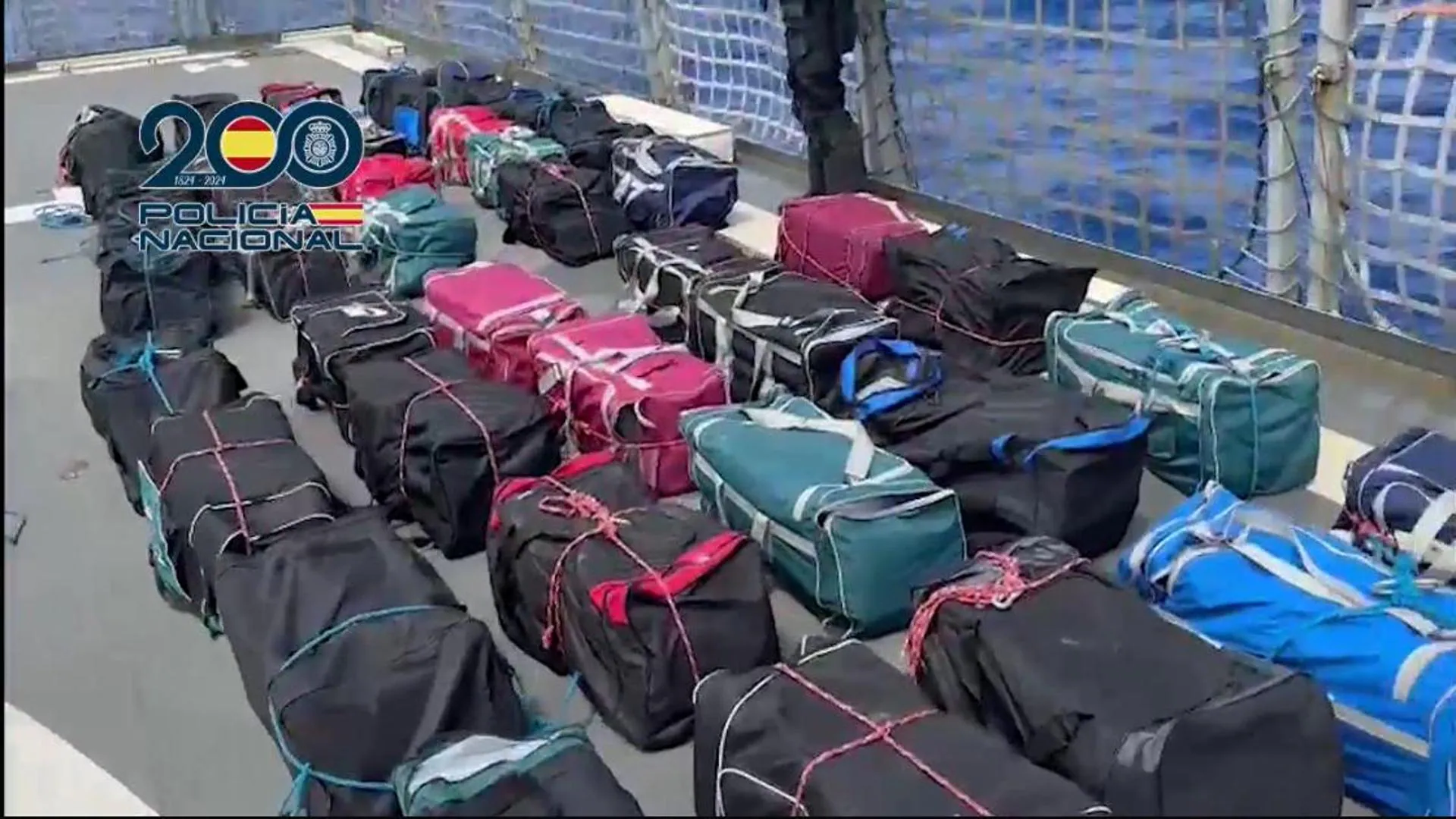‘The Professor’, a santería and the world’s largest drug network


Friday, July 19, 2024, 10:54
The leader of the organization was ‘The Professor’, as in ‘La Casa de Papel’, although instead of leading a gang of thieves, he directed the world’s largest drug network, which has just been dismantled. There was no shortage of a bandit in his ranks: a Norwegian ex-convict who, after serving 15 years behind bars for robbing banks and armored vans, turned to drug trafficking. The organization, which must have been sending large shipments to Europe for years, entrusted the success of the cache to the “blessing” of a santero.
The macro-operation, in which the National Police has worked jointly with Norwegian agents of the NCIS, the American DEA and the British NCA, has resulted in the arrest of 50 people in various countries and another fifty entries and searches, 13 of which have been carried out in the province of Malaga, where the criminal group had taken root. It is not in vain that the criminal organization lived a high standard of living on the Costa del Sol and operated with business deals that allowed them to release the profits obtained from their illegal activity.
The investigation began in June 2020 and was carried out jointly with the authorities of the United Kingdom when they discovered a British organization based in Spain that had international trade channels for smuggling cocaine from South America to Europe via Spain. According to the Ministry of the Interior, the police investigation made it possible to identify the members of the criminal structure and to find out that they had a group of yachts, which they registered in the name of third parties.
The agents were able to discover that the organization operated on the islands of Tenerife, Gran Canaria, El Hierro and Lanzarote, establishing maritime links with South America, with which they created ‘narcorutas’. In turn, from the south of Spain, those responsible for the gang coordinated and directed the transport of each ship; also, in their security environment, they held meetings with contactees from the countries of origin from which the drug was supplied.
The alleged leader of the organization, known as ‘The Professor’, recruited the crews of the sailboats and, from that moment on, another man in charge of the organization was in charge of their maintenance. The leader, who is believed to have been active in drug trafficking for more than 20 years, had full confidence in the Colombian and Mexican cartels, with which he coordinated the production of the narcotic and its transport through South America until he could send it to Spain. The investigation made it possible to discover that the money generated by the drug shipments was reinvested in new operations and laundered through companies.
During the investigation, the agents identified a total of 10 ships that the organization enabled for ‘narcorutas’ and that had different bases of operations in South America and Spain, where it was possible to discover that they used the ports of Valencia, Alicante, Almería, Málaga and the Canary Islands as a logistics point before leaving for the American continent. On the other side of the Atlantic they used strategic points in Brazil, Colombia, Guyana, Trinidad and Tobago, Saint Lucia, Barbados or Panama, where they kept boats ready waiting to receive the order to go out from ‘The Professor’ and his lieutenants. The organization’s communications for these operations to load narcotics were carried out with encrypted security systems that gave them the opportunity to be safe from police surveillance. The ringleaders had 15 telephone terminals each.
Once the criminal structure was revealed, agents detected the preparation of two sailboats, each with more than 1,000 kilograms of cocaine to arrive, so a preventive action was taken to prevent the loading in international waters and judicial assistance was requested. Actions were carried out in several countries – Norway, Bulgaria, Portugal, the United Kingdom, Panama, Saint Lucia, Trinidad and Tobago – as well as in France, Poland or Spain. The international operation has been carried out jointly, under the leadership of the National Police of Spain, the National Criminal Investigation Services (NCIS) of Norway, the US agency Drug Enforcement Administration (DEA), the National Crime Agency (NCA) British and the Maritime Analysis and Operations Center (MAOC) in collaboration with Europol. In addition, police authorities from France, Poland, Portugal, Bulgaria, Panama and Saint Lucia have collaborated.
During the joint operation, 28 searches were carried out in the Spanish provinces of Malaga (13), Valencia (6), Almeria (5), Alicante (2), Girona (1) and Murcia (1), where 26 people allegedly belonging to the criminal organisation were arrested. 16 Norwegians are also among those arrested. One of them is a converted bank and armoured van robber who has already served 15 years in prison for this type of violent acts and who joined the ranks of the criminal group a year ago due to his criminal experience and the respect he enjoyed against mafias from Eastern Europe, according to the Interior Ministry.
The searches led to the seizure of 1,500 kilograms of cocaine and the confiscation of eight boats, 36 vehicles and over 85 telephone terminals.
(tagstotranslate)profesor
